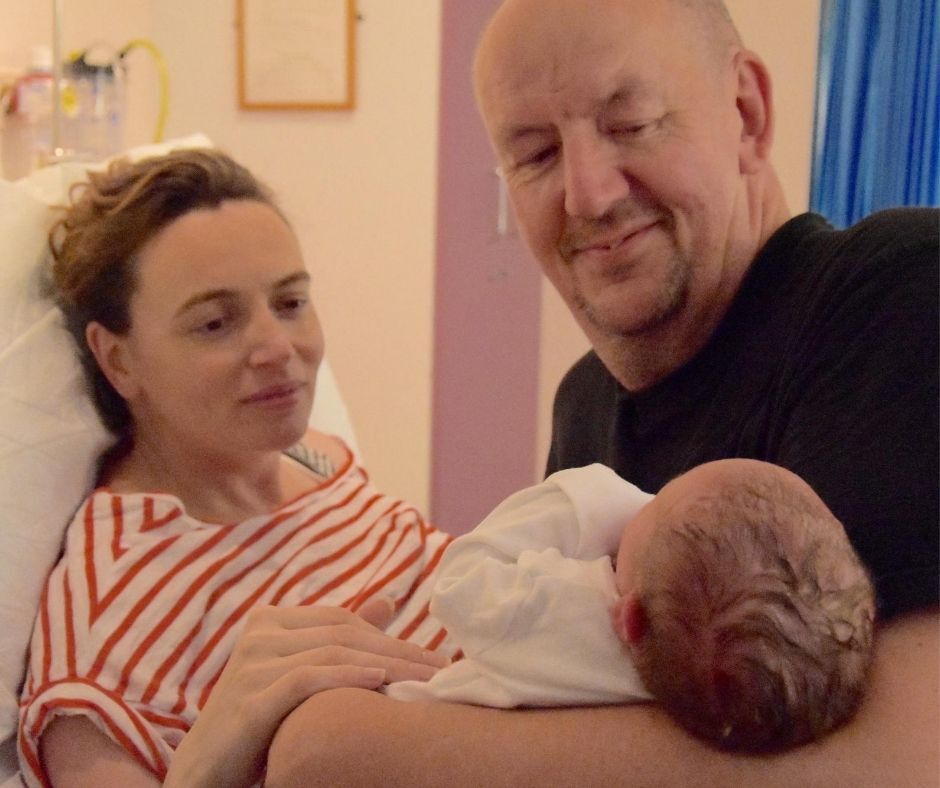It may surprise you to know that the World Health Organisation (WHO) sees
infertility as “a global public health issue”
… especially when overpopulation is currently on the lips of every environmentalist!
Unfortunately, hundreds of thousands of people will be managing their way through the rollercoaster of failed conception, often silently.
You may know someone who has had difficulty conceiving or you may have been affected personally.
Unfortunately, it’s still a taboo subject; I remember putting my foot in it on several occasions with a couple I’d been friends with for several years. I knew they wanted children, and I kept asking if we’d hear the pitter-patter of tiny feet any time soon but little did I know that they’d been diagnosed with unexplained infertility and had endured several unsuccessful rounds of IVF. They successfully adopted a little girl, but they didn’t want to talk about their journey, and I certainly didn’t understand this until I went through it myself.
I put off the inevitable healthcare interventions because I knew I would find them invasive and extremely stressful, I also hoped beyond hope that perhaps if my husband and I tried a little longer I would become pregnant. We even booked a “given up hope” holiday, thinking that this final releasing of expectation would miraculously change our physiology and boom, baby! But no.
We were very lucky and conceived on our first attempt at IVF. Until that point every month was a cycle of hope, anxiety, worry, stress and then inevitably grief, as my period would arrive and hopes of a baby faded.
It’s an interesting place to be as a person who works in a mental health organisation – recognising the cycle of difficult emotions but at times being completely unable to manage them in the moment. Grief was a particularly difficult emotion to carry, especially when I felt unable to share my overwhelming sorrow with friends and family. I was very conscious of the burden of support that my husband, in particular, must have been experiencing. Every month having to care for me as I melted with heartache and disappointment.
I think we all understand how difficult it can be undergoing IVF treatment, especially if it doesn’t work, unfortunately, in my experience anyway, there’s little understanding of the emotions at play if the treatment is successful and you do conceive. The journey isn’t over – mums-to-be now have to the run the gauntlet of anxiety that they may miscarriage during the pregnancy, that the baby may be stillborn or something else goes terribly wrong. You now have this long-hoped-for child in your belly and you have to keep it in there and alive!
One emotion that often isn’t considered is the stressful reality of having a newborn to care for. Certainly, in my case I’ve been trying for a baby for ten years, so what if I didn’t like it? What if, on those dark nights and long tiring days, I didn’t enjoy being a mum?
It seems infertility and IVF is its own emotionally difficult journey, often silently undertaken, by would-be parents who are often desperately juggling a job, home life, and their relationship. For many it’s exceptionally tough – it can break up relationships, bring about lifelong grief, and change the relationship with one’s body and life ambitions. It can of course be successful, bringing huge joy and contentment. Whatever the outcome there will be emotional causalities along the way.
With all this in mind, and if this applies to you, it’s incredibly important to point out, you are not alone. There is help out there, but first, you need to acknowledge that you need it and that you deserve it. Just because the subject matter is taboo doesn’t mean you should endure in silence.
So, what I’ve written below are some suggestions that worked for me, I hope that work for you too.
1. Acknowledge you need help.
2. Take Action – by prioritising getting support – it doesn’t have to be a regular counselling session. It could be an online support group or a charity phoneline. If you’re having difficult feelings right now it’s best to sort them out right now, rather than wait till your one-hour counselling session next Tuesday! NISAD believes that traditional one-hour counselling sessions are not the most effective way to have support. Look for organisations that are more flexible in their approach – providing support when you need it most, not when the calendar says so.
3. Know everyone’s experience is different – some people may breeze through this, others won’t. Wherever you are on this scale it doesn’t matter, you don’t have to be rock bottom to ask for support. Sometimes a short chat can help you manage difficult feelings in the moment.
4. Talk about it, if you can. We can only break taboos by speaking about experiences and normalising them. Opening up gives us all permission to acknowledge our very human feelings. There is no shame in infertility, our bodies are complex and they don’t always work in the ways we want them to – unfortunately that’s how life is, but you don’t have to struggle with your mental health because of it.

Sally Kettle
She is also the CEO of the English charity Active Pregnancy Foundation
Our clinical team endorses Sally’s suggestions.


